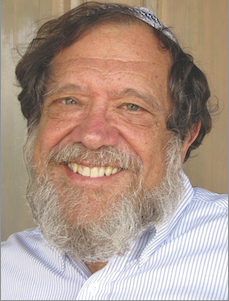People who used to say, "Give President Obama more time" when the president was criticized for capitulating to the right, or who argued that Obama must have a plan to turn things around, are now largely depressed and angry. To many liberals and progressives, the president's unwillingness to veto any measure that includes continued tax relief for billionaires is the last straw, building on a record of spinelessness that includes his escalation of the war in Afghanistan, abandonment of a public option for health-care reform, refusal to prosecute those who tortured in Iraq or lied us into that war, and unwillingness to tax carbon emissions.
With his base deeply disillusioned, many progressives are starting to believe that Obama has little chance of winning reelection unless he enthusiastically embraces a populist agenda and worldview - soon. Yet there is little chance that will happen without a massive public revolt by his constituency that goes beyond rallies, snide remarks from television personalities or indignant op-eds.
Those of us who worry that a full-scale Republican return to power in 2012 would be a disaster not just for those hurting from the Republican-policy-inspired economic meltdown but also for the environment, social justice and world peace believe it is critical to get Obama to become the candidate whom most Americans believed they elected in 2008. Despite the outcome of last month's election, it is unlikely that the level of his base's alienation will register with the president until late in the 2012 election cycle - far too late for society today and our future tomorrow.
But there is a real way to save the Obama presidency: by challenging him in the 2012 presidential primaries with a candidate who would unequivocally commit to a well-defined progressive agenda and contrast it with the Obama administration's policies. Such a candidacy would be pooh-poohed by the media, but if it gathered enough popular support - as is likely given the level of alienation among many who were the backbone of Obama's 2008 success - this campaign would pressure Obama toward much more progressive positions and make him a more viable 2012 candidate. Far from weakening his chances for reelection, this kind of progressive primary challenge could save Obama if he moves in the desired direction. And if he holds firm to his current track, he's a goner anyway.
The basic platform for such a candidate is clear: Unequivocally call for an immediate end to the presence of U.S. troops, advisers and private U.S.-based security firms in Afghanistan, Iraq and Pakistan, and replace the "war on terror" with a Global Marshall Plan that roots homeland security in a strategy of generosity and concern for the well-being of everyone on the planet. Domestically, call for a massive jobs program; a freeze on mortgage foreclosures; a national bank that would offer interest-free loans to those seeking to create or expand small businesses; immediate implementation of the parts of the Obama health-care plan that would benefit ordinary citizens and build support for a health plan for all citizens; dramatically lower prices for drugs that treat critical diseases such as AIDS and cancer; a strong tax on carbon emissions; and immediate prosecution of those government employees involved in torture or cover-ups to justify the invasion of Iraq. This candidate should push for the media to provide free and equal time to all major candidates for national office as well as for constitutional amendments requiring only public financing in elections and, separately, for corporations to prove every five years to a jury of ordinary citizens that they have a satisfactory history of environmental responsibility (much like the Environmental and Social Responsibility Amendment, or ESRA, advocated by the Network of Spiritual Progressives).
This policy platform must be matched with a willingness to talk unequivocally about the spiritual and ethical need for a new bottom line - one of love, kindness and generosity. We need a progressive push for a new New Deal, which in the 21st century could be the Caring Society: "Caring for Each Other and the Earth."
Public officials who would make excellent candidates should they run on this platform include Sens. Russ Feingold, Bernie Sanders, Barbara Mikulski or Al Franken; Reps. Joe Sestak, Maxine Waters, Raul Grijalva, Alan Grayson, Barbara Lee, Dennis Kucinich, Lois Capps, Jim Moran and Lynn Woolsey. Others include Jim McGovern, Marcy Kaptur, Jim McDermott or John Conyers. We should also consider popular figures outside of government. How about Robert F. Kennedy Jr.? Why not Rachel Maddow, Bill Moyers, Susan Sarandon or the Rev. James Forbes? All suggestions need to be part of this critical conversation. What's clear is that we need such a candidate, and the finances to back her or him, very soon.





